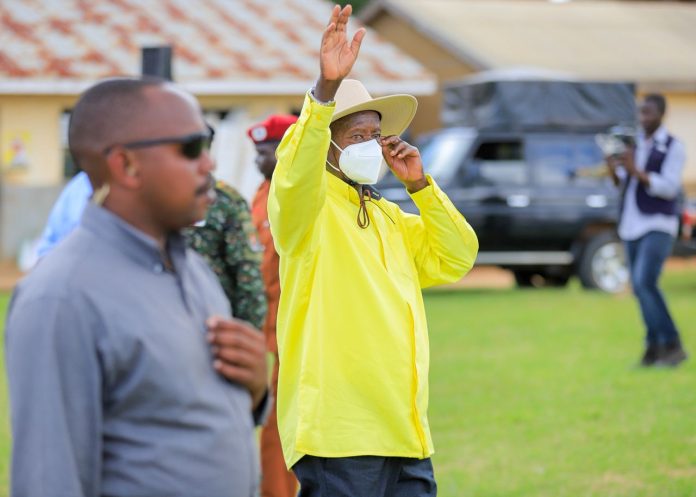President Yoweri Kaguta Museveni, the National Resistance Movement (NRM) flagbearer, concluded his campaign trail in the West Nile sub-region with a strong message centered on peace, development, and wealth creation.
Addressing thousands of supporters in Adjumani district on Monday, the President reiterated that peace must be followed by tangible development to improve the livelihoods of Ugandans.
“Peace must be followed by development,” Museveni said, emphasizing the importance of maintaining social and economic progress.
He credited the success of immunization programs for reducing child mortality, noting that diseases such as measles had been largely controlled.
The President highlighted several infrastructural achievements under the NRM government, pointing to the extensive road network that now connects various districts in the region.
“When the NRM came, the tarmac road was stopping in Gulu. We have since repaired and extended it through Atiak, Adjumani, Laropi, all the way to Moyo, Yumbe, and Koboko,” Museveni said.
However, he expressed concern over the poor state of the Obongi security road and directed the Ministry of Works to prioritize its maintenance.
Museveni underscored that the foundation of national progress rests on peace, electricity, and good roads—followed by health and education.
He urged leaders to prioritize these sectors when allocating national budgets, rather than focusing solely on salary increments for public servants.
“It is not fair to demand higher salaries when roads are not done,” he said. “We are not against increasing salaries, but first things first—peace, roads, electricity, health, and schools.”
He commended the Uganda People’s Defence Forces (UPDF) for their long-standing commitment to serve the country even with limited pay, likening their sacrifice to understanding a mother’s financial struggles.
On health, the President lauded the impact of immunization in improving population health but expressed concern over the theft of drugs in government facilities.
He revealed plans to enlist “God-fearing” individuals to monitor drug usage in the country’s 1,400 health centers, supplementing existing digital tracking systems.
Turning to economic infrastructure, Museveni pointed out that development is visible through the expansion of electricity and road networks in the region.
He urged citizens to take advantage of the peace and infrastructure to create wealth through productive activities.
“The road affects everybody,” he said. “Let’s start with what benefits all of us, and then move to other things. But let’s do the minimum first.”
Museveni also reminded the audience of Uganda’s turbulent past—from the wars of Idi Amin and the NRM’s own struggles against past regimes—to emphasize the value of the stability now enjoyed across the country.
“Because of patriotism, pan-Africanism, and unity, we have defeated the wars. All Ugandans are victors,” he said, adding that reconciliation and cooperation remain central to the NRM’s governance philosophy.
Museveni urged the people to consolidate peace by engaging in wealth creation initiatives, stressing that development must go hand in hand with stability.


